Christopher W Cleghorn
Procedural Content Generation using Neuroevolution and Novelty Search for Diverse Video Game Levels
Apr 14, 2022
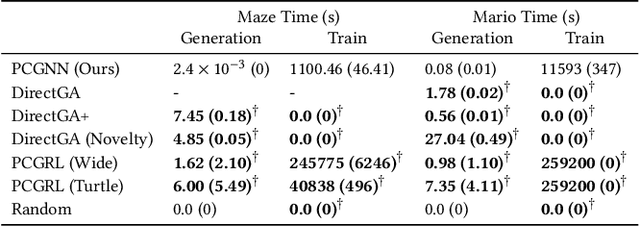
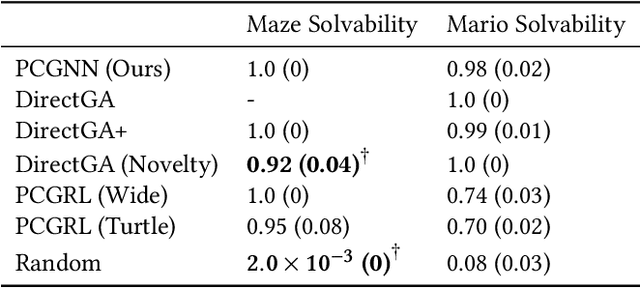
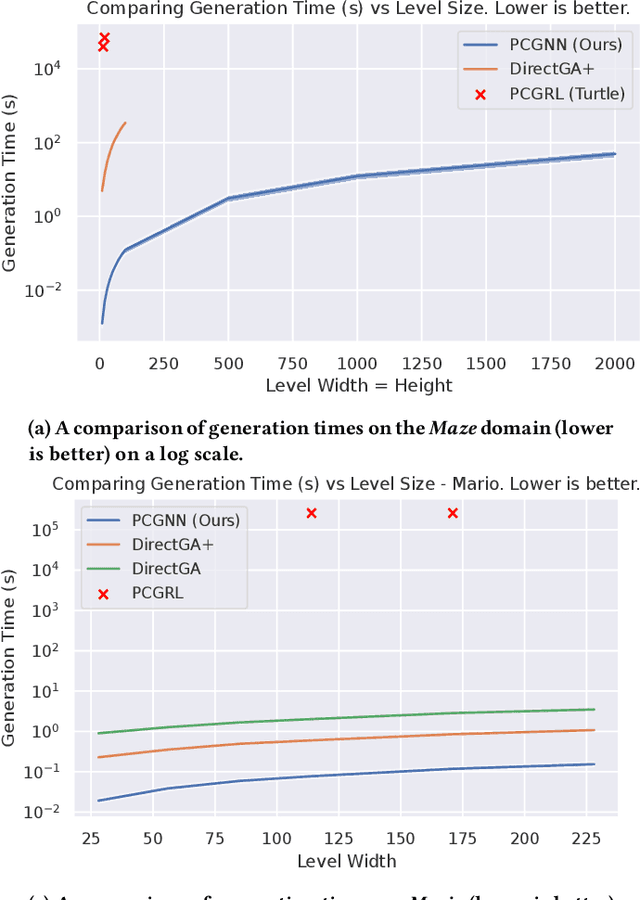
Abstract:Procedurally generated video game content has the potential to drastically reduce the content creation budget of game developers and large studios. However, adoption is hindered by limitations such as slow generation, as well as low quality and diversity of content. We introduce an evolutionary search-based approach for evolving level generators using novelty search to procedurally generate diverse levels in real time, without requiring training data or detailed domain-specific knowledge. We test our method on two domains, and our results show an order of magnitude speedup in generation time compared to existing methods while obtaining comparable metric scores. We further demonstrate the ability to generalise to arbitrary-sized levels without retraining.
Particle Swarm Optimization: Stability Analysis using N-Informers under Arbitrary Coefficient Distributions
Apr 01, 2020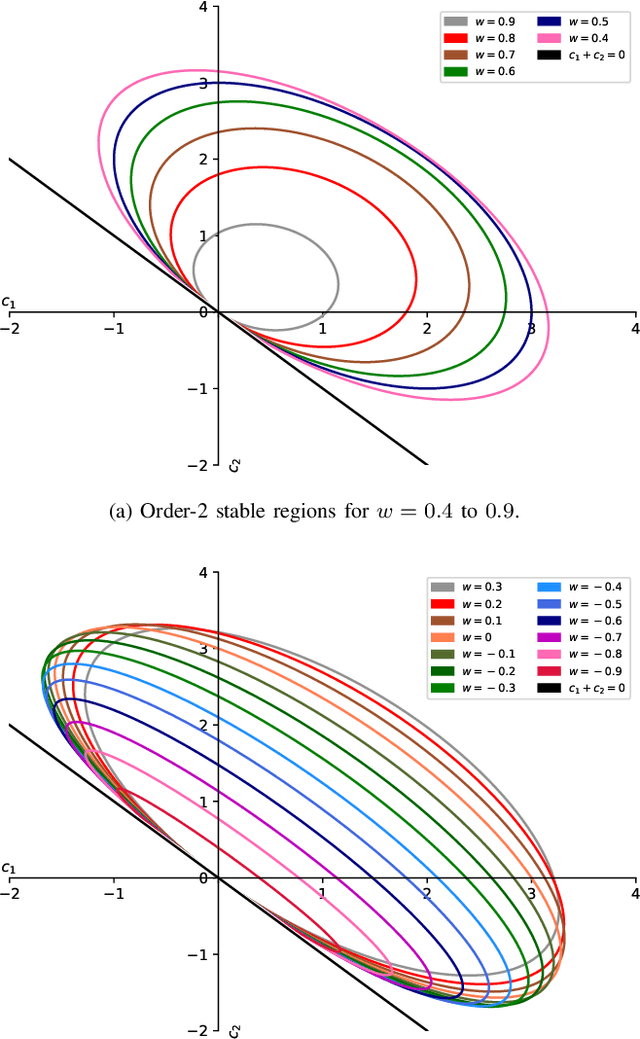
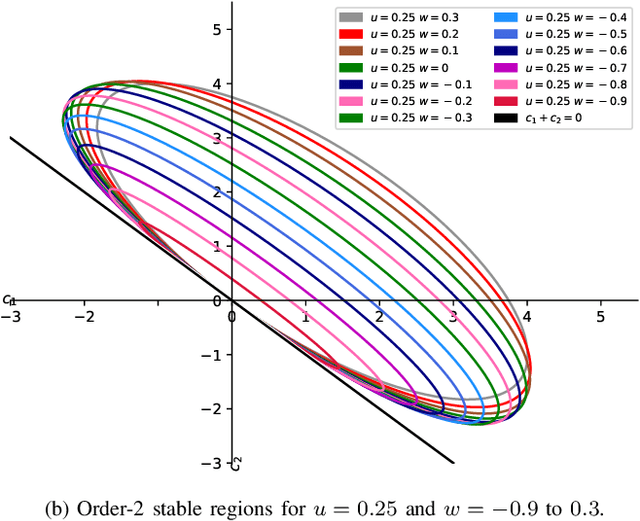
Abstract:This paper derives, under minimal modelling assumptions, a simple to use theorem for obtaining both order-$1$ and order-$2$ stability criteria for a common class of particle swarm optimization (PSO) variants. Specifically, PSO variants that can be rewritten as a finite sum of stochastically weighted difference vectors between a particle's position and swarm informers are covered by the theorem. Additionally, the use of the derived theorem allows a PSO practitioner to obtain stability criteria that contains no artificial restriction on the relationship between control coefficients. Almost all previous PSO stability results have provided stability criteria under the restriction that the social and cognitive control coefficients are equal; such restrictions are not present when using the derived theorem. Using the derived theorem, as demonstration of its ease of use, stability criteria are derived without the imposed restriction on the relation between the control coefficients for three popular PSO variants.
 Add to Chrome
Add to Chrome Add to Firefox
Add to Firefox Add to Edge
Add to Edge